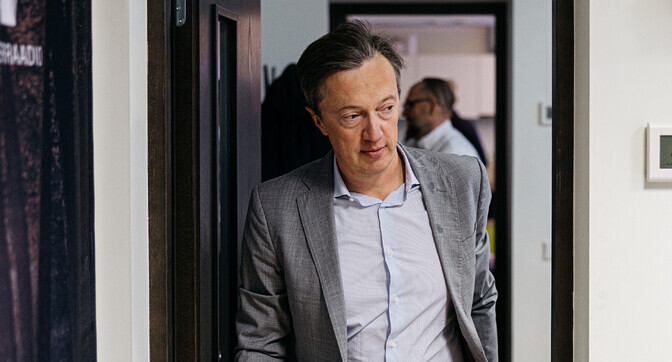UN Security Council discussions on the Estonian airspace violation by Russian jets were a great success, drawing attention to NATO’s Eastern Flank, said US expert Andreas Kaju.
Trump’s recent praise for Ukraine is sincere, though the president is most likely under pressure from the Senate, Kaju told “Aktuaalne kaamera.”
With Donald Trump, the question is always what do you believe and what don’t you believe. How seriously should we take his shifts in position and rhetoric on the war in Ukraine?
These should certainly be taken seriously. He has said one thing and then another — in interviews, while walking near the General Assembly, and later via his social media. I think we have to put this into the broader context. What he says is certainly influenced by whoever he last spoke to, and I don’t mean that lightly. I mean his close advisers, his national security adviser, his security team; even senior senators, who help him decide what to do on Russia. He has promised solutions, hosted Putin, but then nothing happened in the following months.
U.S. domestic politics is another factor influencing him. There is still a bill at the Senate, backed by a strong bipartisan majority and led by [Senators] Lindsey Graham and Richard Blumenthal, which would impose secondary sanctions on countries buying petroleum products from Russia. Republicans are also tired of waiting for Trump — they expected him to sign a bill like this into law and are now pressuring him to do so.
So there is no need to fear that after two weeks Trump will say he never said any of this?
It certainly would make no sense to assume that one social media post defines U.S. policy, even though the saying goes that, when the American president says something, it becomes policy. In this case, there is a broader context and dynamic. The U.S. is tired of waiting on Russia and wants to apply pressure, so that Russia has an incentive to come to the negotiating table.
What would you bring out most, from the meetings of the past few days?
I would definitely say that the discussion at the UN Security Council represented a major success for Estonia. This should not be underestimated. Just a few weeks ago, none of us would have expected we could have drawn so much attention to this issue, yet a large part of the UN shared our concerns and was ready to back us.
With the U.S. and Donald Trump, you always have to look at foreign and domestic politics discretely. What is your comment on Trump’s domestic political scandals — the paracetamol and pregnancy issue, [talk show host] Jimmy Kimmel, and so on? What is the current state of U.S. domestic politics?
I think they themselves would say it is relatively good. Of course, there are many issues where policies or positions we consider consensual or science-based are under attack, something which feels alien to us. At the same time, political violence in America is alarming, and needs to be addressed, by both sides. My sense is that both Democrats and Republicans understand this, while no one is directly interested in throwing fuel on the fire, because it would lead to many casualties, on both sides.
—
